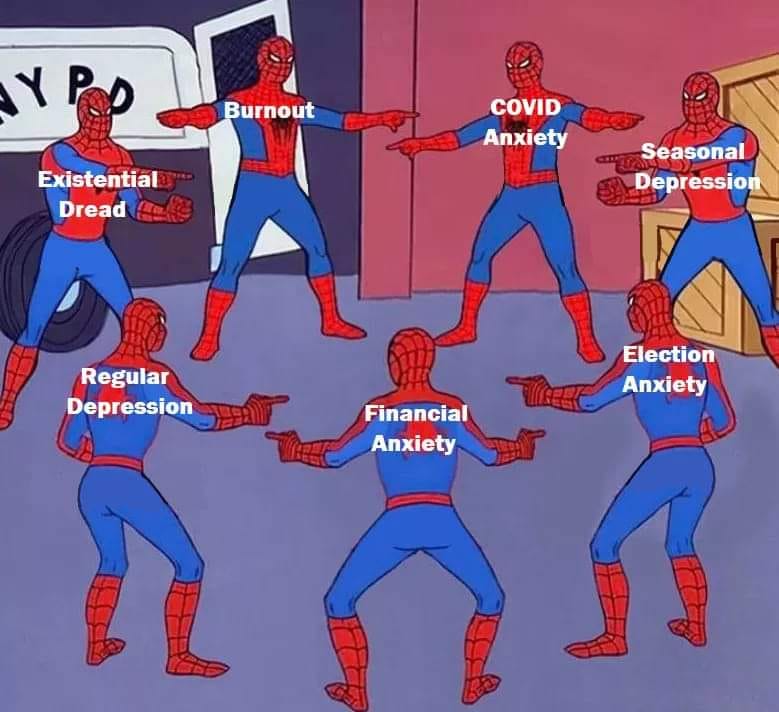The winner of the election is... Big Tech
By Mark Hurst • November 5, 2020
As I write this column, votes are still being counted in several U.S. states. The presidential election will probably dominate the news for some time - with counts, and courts, and things of that sort. (Think of what Dr. Seuss could have done with this year.)
Amidst all the shouty chaos online, I came across an insightful analysis in just four sentences:
Regardless of who wins tonight, the real winner is Silicon Valley. Americans have more in common than we think we do. However, the social media companies have profited enormously by putting what divisions we do have on steroids. The result is this stark 50/50 map.
This was posted on election night by Seth Macfarlane, the creator of the TV show "Family Guy." I'm not very familiar with his work, but here I think Macfarlane deserves full credit for naming our key challenge.
First, a strong caveat that, yes, of course, there are deep divisions and very real differences of opinion among Americans. The point I want to highlight is that actively deepening the divisions is a source of profit for Silicon Valley. By tuning their recommendation algorithms for maximal "engagement," Big Tech companies make money by promoting sensational content that will keep people glued to the screen: lurid gossip, conspiracy theories, and falsehoods of all kinds. Facebook and Twitter slop out their algorithmic timelines, Google corrupts its search results, and YouTube twists its video recommendations - all for maximal engagement.
As a further example, Facebook's group-recommendation feature has been shown to encourage a violently divided society, for profit. A blockbuster Wall Street Journal article a few months ago described how extremist groups thrive on Facebook - and how Facebook leadership knew this was happening and opted not to shut it down. The Tech Transparency Project described it in starker terms. (Zuck, under oath just last week, claimed not to know anything about this.) As Wolfie Christl put it, "It's toxic. They know it. They won't change it."
Now take this fraudulent business model and apply it to the election: there's a lot of money to be made by encouraging Americans to hate each other. Any candidate promising to "unify" the country after the election - if they act on that pledge - will naturally face strong resistance from Big Tech. Their business is based on dividing us, not unifying us. Again, see the Wall Street Journal article: Facebook leadership saw a choice between profit and a healthy society, and they chose profit.
Now that the stakes are even higher, do we think Big Tech will abandon its profit model?
The crazy thing, truly the insane thing, is what we're being asked to believe now. Facebook, Twitter, and Google claim that they're fixing the problem - again, caused by their algorithms - while the companies continue to base their business on those same algorithms. Almost daily these companies announce some new patch to their sludge machines: a warning label here, "tuning the algorithm" there, adding a few more moderators, even taking down entire posts in some cases. All laughably irrelevant to the issue, which is that the companies are still making money by amplifying harmful content. Claiming to fix it with a "tweak" is like the arsonist, when confronted by neighbors, saying he'll burn down houses slightly differently from now on: the flamethrower will shoot its flames more quietly!
The emerging danger is that these patchwork "solutions" - algorithmic tweaks and so on - actually make Silicon Valley more powerful. By pretending to fix the problem, the companies derail and foreclose any significant conversation about the underlying business model.
With the opposition defanged, the companies will cement their position as the unquestioned gatekeepers of all communication, media, commerce, and culture. And thus they will continue, unabated, using algorithmic amplification to promote harmful material: automatically, efficiently, totally at scale. We'll drift further away from each other than ever, as Silicon Valley expands to fill the space in between.
But it doesn't have to be this way. The solution is obvious, and I've stated it before:
• As I wrote a year and a half ago, toxic content has a simple solution: kill the algorithm.
• And as I said back in July in Medium's OneZero, ban algorithmic amplification.
If the problem is the algorithm, ban the algorithm.
However the election turns out, I can only hope that the president will confront the problem at its root. Outlaw the algorithm and we'll have a better chance of connecting honestly with each other.
Good Reports updates:
I'm happy to announce several updates to Good Reports, my new review site for online tools. The launch announcement last week brought about a healthy number of suggestions for non-toxic tools to add to the list. Here they are:
Best web browser (more about Brave)
Best mobile device (added Fairphone)
Best ad blocker (added uBlock Origin)
Best videoconference platform (added Jami)
Non-toxic social network (added Tildes, Metafilter)
Let's stay positive and get through this.

Until next time,
- Mark Hurst
Subscribe to my email newsletter
Sign up for my to-do list with privacy built in, Good Todo
Email: mark@creativegood.com
Twitter: @markhurst
Podcast/radio show: techtonic.fm
- - -